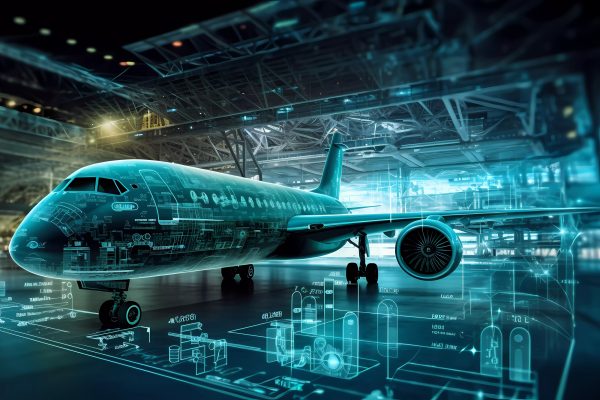Blogs
Future of Aviation
Beyond the Runway: Exploring the Future of Sustainable Aviation

As concerns about climate change and environmental sustainability continue to grow, the aviation industry faces increasing pressure to reduce its carbon footprint and adopt more sustainable practices. Beyond the immediate challenges of fuel efficiency and emissions reduction, the future of aviation lies in embracing innovative solutions that not only mitigate environmental impact but also ensure long-term viability. In this blog, we delve into the concept of sustainable aviation and explore the technologies and strategies driving the industry towards a greener future.
The Need for Sustainable Aviation:
Aviation plays a crucial role in global connectivity and economic development, but its environmental impact cannot be ignored. Traditional jet fuels are major contributors to greenhouse gas emissions, and the industry’s reliance on fossil fuels poses a significant challenge in the fight against climate change. As public awareness of environmental issues grows, there is a pressing need for the aviation sector to transition towards more sustainable practices.
Emerging Technologies and Innovations:
Fortunately, advancements in technology are paving the way for a more sustainable future in aviation. One promising area of innovation is the development of alternative fuels derived from renewable sources such as biofuels, hydrogen, and electric propulsion systems. These alternative fuels produce fewer emissions and have the potential to significantly reduce the environmental impact of air travel.
Furthermore, aircraft manufacturers are investing in the development of more fuel-efficient aircraft designs and lightweight materials to improve aerodynamics and reduce fuel consumption. Additionally, advancements in air traffic management systems and route optimization algorithms are helping to minimize fuel burn and emissions during flights.
Collaborative Efforts and Industry Initiatives:
Achieving sustainable aviation requires collaboration and commitment from all stakeholders across the industry. Airlines, manufacturers, airports, regulators, and governments must work together to develop and implement sustainable practices and policies. Several industry initiatives, such as the International Air Transport Association’s (IATA) Carbon Offset Program and the Sustainable Aviation Fuel Users Group, are driving efforts to accelerate the adoption of sustainable aviation fuels and reduce emissions.
Furthermore, governments are increasingly implementing regulations and incentives to promote sustainable aviation, such as carbon pricing mechanisms and research grants for green aviation technologies. These collaborative efforts are essential for accelerating the transition towards a more sustainable aviation industry.
Challenges and Opportunities:
While the transition to sustainable aviation presents numerous challenges, it also offers significant opportunities for innovation and growth. Investment in sustainable aviation technologies not only benefits the environment but also stimulates economic development and job creation. Moreover, companies that prioritize sustainability are likely to gain a competitive advantage in the marketplace and enhance their reputation among environmentally conscious consumers.
However, challenges such as high costs, technological limitations, and regulatory barriers remain significant obstacles to widespread adoption of sustainable aviation practices. Overcoming these challenges will require continued investment in research and development, policy support from governments, and a collective commitment from the industry to prioritize sustainability.
Conclusion:
In conclusion, the future of aviation lies in sustainable practices that minimize environmental impact while ensuring continued growth and development. By embracing innovative technologies, collaborating across sectors, and committing to sustainable policies and practices, the aviation industry can pave the way towards a greener, more sustainable future. Beyond the runway, the journey towards sustainable aviation offers immense opportunities for innovation, growth, and environmental stewardship. As we explore the possibilities of sustainable aviation, we are not only shaping the future of air travel but also safeguarding the health of our planet for generations to come.
